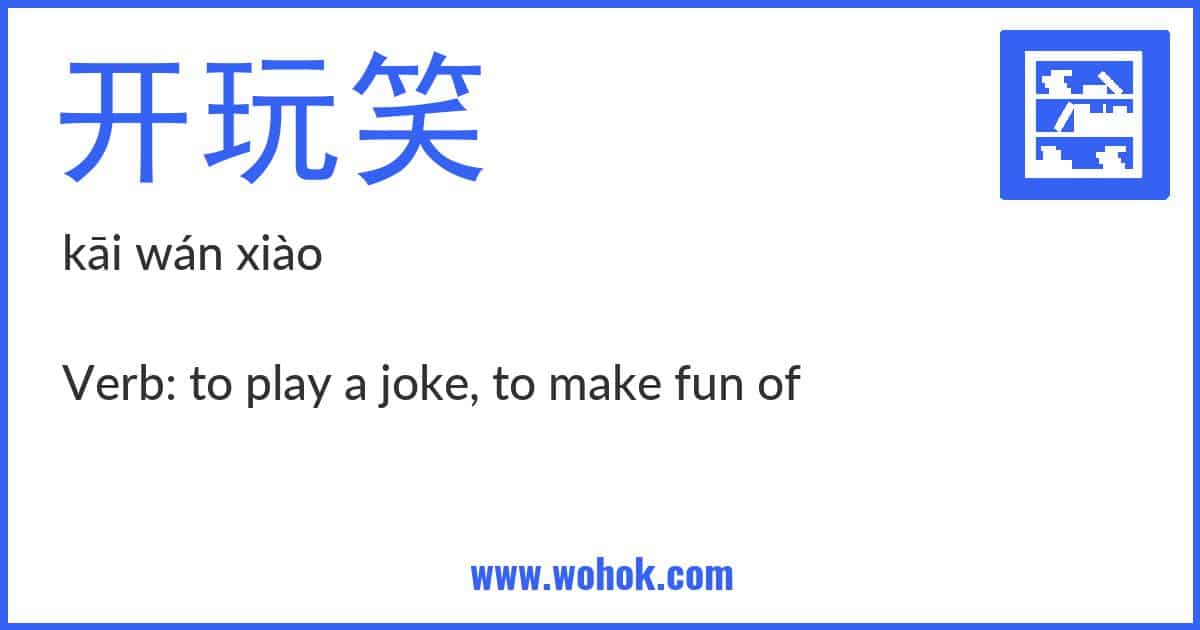The Chinese word 开玩笑 means “to joke” or “to make a joke”. It is commonly used in casual conversations to express humor or to lighten the mood. For example, if someone says something that is obviously untrue, you can respond by saying “你在开玩笑吧?”, which means “Are you joking?”. The phrase can also be used to apologize for a joke that may have been taken the wrong way, as in “对不起,我只是开玩笑”, which means “Sorry, I was just joking”.
Translation
Verb: to play a joke, to make fun of
Pronunciation
Example Sentences
| Chinese | Pinyin | Engish |
|---|---|---|
| 你别当真,我们只是在开玩笑 | nǐ bié dāngzhēn, wǒmen zhǐshì zài kāiwánxiào | Don’t take it seriously, we’re just joking |
| 他说他要辞职,我以为他在开玩笑 | tā shuō tā yào cízhí, wǒ yǐwéi tā zài kāiwánxiào | He said he was going to resign, I thought he was joking |
| 我们不应该开玩笑地对待这个问题 | wǒmen bù yīnggāi kāiwánxiào de duìdài zhège wèntí | We shouldn’t treat this issue as a joke |
| 他喜欢开玩笑,但是他也很认真 | tā xǐhuān kāiwánxiào, dànshì tā yě hěn rènzhēn | He likes to joke around, but he’s also very serious |
| 我们可以开玩笑,但是不要伤害别人 | wǒmen kěyǐ kāiwánxiào, dànshì bùyào shānghài biérén | We can joke around, but we shouldn’t hurt others |
| 他的幽默感很强,经常让人开玩笑 | tā de yōumò gǎn hěn qiáng, jīngcháng ràng rén kāiwánxiào | He has a strong sense of humor and often makes people laugh |
HSK
开玩笑 is part of HSK Level 4 in HSK 2.0. In the newer HSK 3.0 it is part of HSK Level 1.
Learning Card


